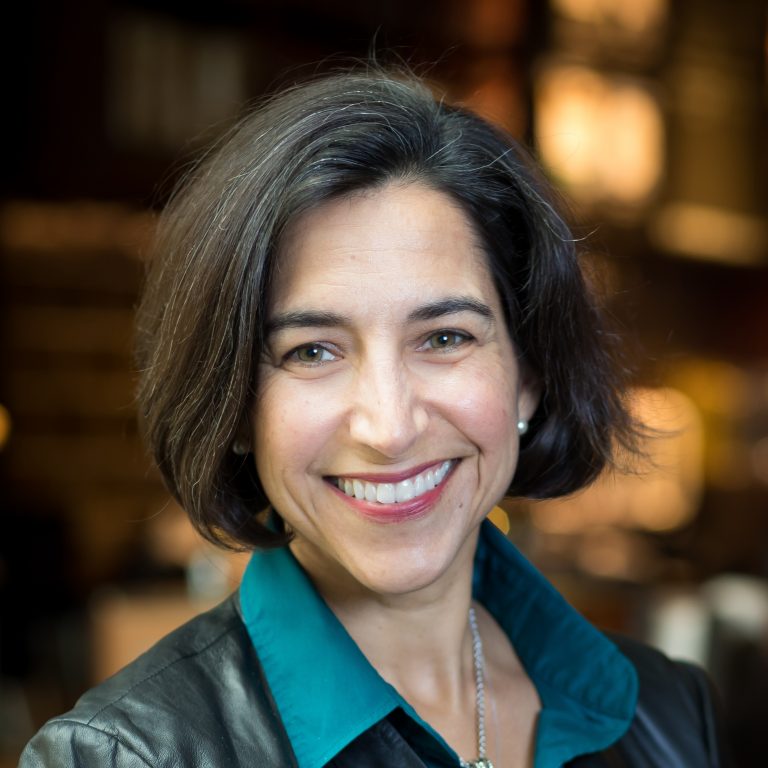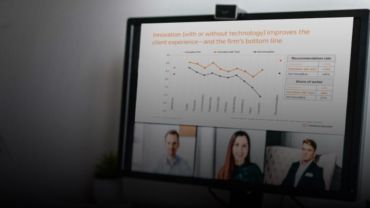Upfront & Personal, a column created by Rose Ors, brings “the person behind the title” to the forefront in interviews with some of the most influential members of the legal community
Rachel Gonzalez, executive vice president, general counsel, and secretary for Starbucks Coffee Co., spoke with Rose Ors, the CEO and Founder of ClientSmart, about the importance of advocacy, the value of making mistakes, and the expanding role of the GC and law department as enablers of business growth.
Rose Ors: What is a life moment that has shaped you?
Rachel Gonzalez: Our family moved from California to New Orleans when I was starting first grade. On the first day in my new school, the teacher asked me what language we spoke at home. I told her we spoke Spanish and English. Based only on the fact that I was bilingual, she placed me in a learning group below my capabilities. Several weeks later, my mother noticed I was flying through my reading and math workbooks. When she learned from me that the teacher had placed me in the remedial learning group, “learning group three,” without having been given a test to determine my skill level, she was outraged. The next day, my mom stormed into the principal’s office and demanded that I be tested. I aced the tests and was placed in the most advanced group, “learning group one.”
My mother’s swift action showed me the importance of standing up for yourself and others. It was a lesson on the importance of advocacy that has stayed with me. I also learned another important lesson in those first few weeks in my new school — the difference between being well-intentioned and intentional. I believed then, and I believe now, that my first-grade teacher was a well-intentioned person who relied on a hunch or gut feeling to decide where I belonged. Had she been intentional in making such an important decision, she would have given me reading and math tests to measure my skills in these areas.
Rose Ors: How do the lessons you learned in first grade about advocacy and intentionality show up in your work life today?
Rachel Gonzalez: Personally, it is important to me to be an advocate for others who have proven their mettle and yet struggle to crack the glass ceiling. I am also part of a company that advocates for, and is intentional about, helping the people and the communities we impact that have long struggled with their own “glass ceilings.” I have the privilege of working with my colleagues on policies and programs that move the needle towards a more equitable place for everyone. We are intentional about designing and implementing these policies and tracking and reporting on their efficacy.
Rose Ors: What career advice would you give your 20-year old self?
Rachel Gonzalez: My advice to any 20-year-old is to be less afraid of making mistakes. There is value in making mistakes as long as you make an effort to learn from them. Our 20s is a fantastic time to learn about who we are and how we want to show up in the world. It is a time to play and experiment. So, enjoy and embrace the ride — both the successes and the lessons learned.

Rose Ors: Outside of your family and your work, what brings you joy?
Rachel Gonzalez: There are many things that bring me joy. Since the start of the pandemic, I have added to my list long weekend hikes in and around Seattle. On these hikes, I take in the natural world with all my senses and enjoy the peaceful and meditative qualities it offers me. I also find joy starting my day with meditation and ending my day reading a great book of fiction. These habits and rituals have a way of both clearing and opening my mind.
Rose Ors: Moving to the expanding role of the in-house legal team, how has the role of the general counsel and law department changed since you took on the role in 2018?
Rachel Gonzalez: The role of the general counsel has dramatically changed from being only a legal executive to being a business leader with legal acumen. In this expanded role, the general counsel and the law department work more closely with the business in setting and executing our strategy.
Long gone are the days when our role was to identify the business risks and offer mitigation strategies but leave it to the business to decide on the best path forward. I believe that today our role requires that we co-design business strategies and co-own their outcomes.
Rose Ors: In co-designing strategies and outcomes, the general counsel and law department must also get more comfortable with risk taking and failure — traits not commonly associated with lawyers. Is that correct?
Rachel Gonzalez: I agree that the shift can make many lawyers uncomfortable. But the transition is necessary if we are to fulfill one of our principal roles — enabling the business to take calculated risks. Inherent in taking risks is the potential for failure. When failure happens or when the desired outcome fails to materialize, you take a step back, review the assumptions made and the approach taken to identify what went wrong, and transform the experience into lessons learned. Taking intelligent risks is critical to the growth of every organization.
Rose Ors: That require a learning and adaptive mindset, doesn’t it?
Rachel Gonzalez: Exactly. It is the kind of mindset that the pandemic has required from all of us. The global health crisis challenged all of us in ways we could not have imagined. It tested our agility in a lightning-fast regulatory and business environment where change was the constant factor.
Rose Ors: Have there been any other shifts?
Rachel Gonzalez: Yes. Our law department is increasing our collaboration both within the department as well as with the internal business units we serve and the outside counsel we employ. It is essential in tackling complex problems to have cross-functional groups join forces early rather than wait for work to be transferred from one silo to the next.
The combined expertise and perspectives of these teams offer a richer set of problem-solving conversations and solutions.
The interview has been edited and condensed by Rose Ors.







